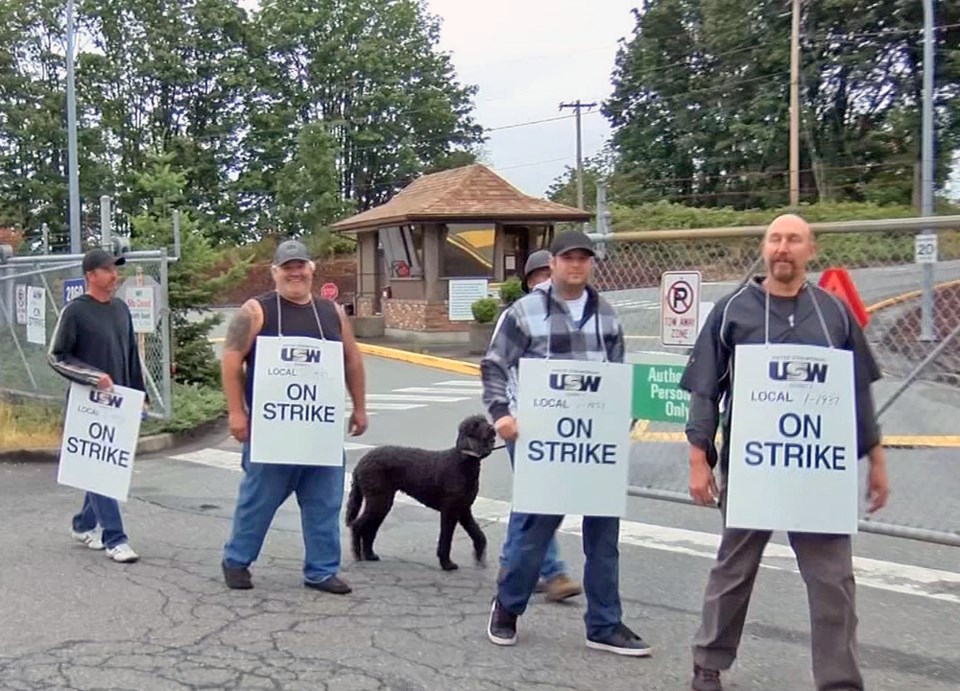The union representing 3,000 striking forest workers has rejected an invitation from Western Forest Products to enter binding arbitration to settle what is now a four-month labour dispute.
Citing a bad track record of going the binding-arbitration route, the bargaining committee of Steelworkers Local 1-1937 has told its members “binding arbitration is completely unacceptable.”
In an update to its members Friday, the union noted the last time these workers faced binding arbitration was 2004, when the IWA was forced to accept what it called a sub-standard collective agreement that gutted the rights workers had gained over decades of collective bargaining.
“Repeating mistakes of the past is not the way we will reach a collective agreement,” the union wrote. “By WFP’s request yesterday, they are trying to get a third party to force concessions on our members that they know they cannot achieve at the bargaining table.
“We can never give up control of our collective agreement rights to another third party as history does not lie. We have witnessed the damage and suffered the consequences of this dangerous process and could never agree to it.”
With negotiations at a stalemate and no new mediation talks scheduled, Western made the proposal Thursday, requesting the union join them in a process to be overseen by mediators Vince Ready and Amanda Rogers.
"Our employees, contractors, their families, our customers and operating communities are all counting on us to resolve the labour dispute," said Western chief executive Don Demens in a statement. “While we were encouraged by the progress we made during previous mediated talks, with no future dates scheduled, this step demonstrates our commitment to getting employees back to work and products to our customers."
The strike, which began July 1, affects about 3,000 workers at all the company’s unionized manufacturing and timberlands operations in British Columbia.
The union did find a degree of optimism in the overture, as it pointed out in a letter to the union, Western said it is now open to movement on its positions and would stay as long as it takes to reach an agreement.
“This is definitely good news, as it was WFP’s refusal to move on a single item [Oct. 20] that ended the last mediation session,” it wrote.
The union maintains it is open to resuming the current mediation process and has pledged to stay as long as it takes to reach a negotiated collective agreement.



